If you’ve ever dreamt of a place where willows weep into quiet canals, silk fans whisper ancient secrets, and every bite tastes like a poem—then Suzhou may already live in your imagination. Nestled in the soft folds of China’s Jiangnan region and just a swift train ride from Shanghai, Suzhou is more than just a destination. It’s a delicate blend of history, art, water, and time.
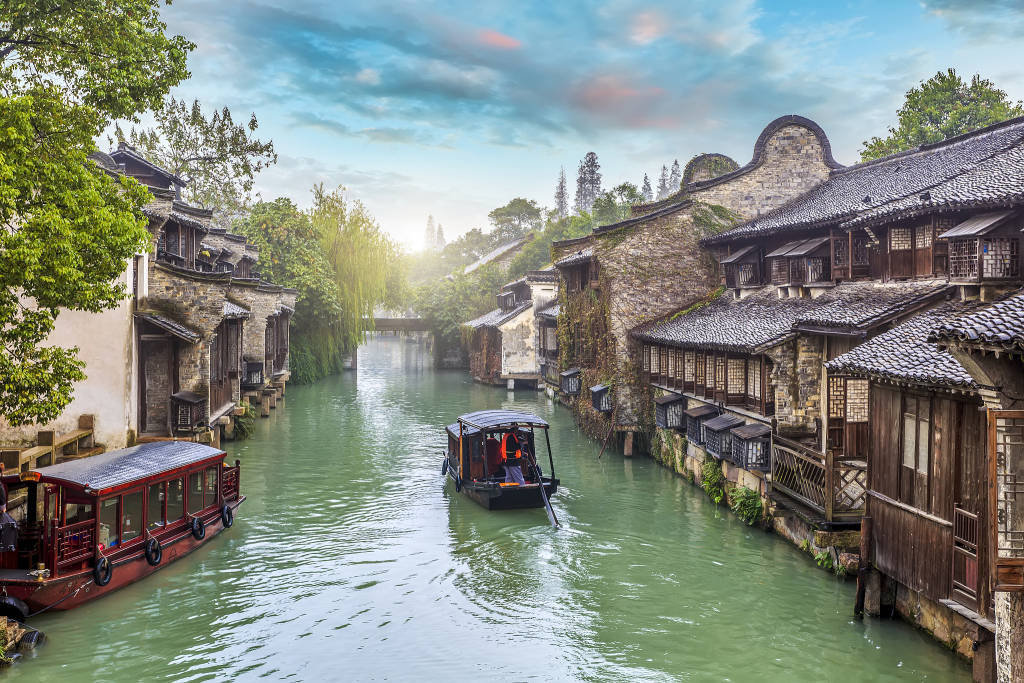
A City of Classical Gardens and Cultural Elegance
Suzhou’s classical gardens are among the most celebrated in the world, and for good reason. Recognized as UNESCO World Heritage Sites, these gardens aren’t merely decorative—they’re poetic compositions of rock, water, and architecture, designed to reflect harmony between humans and nature.
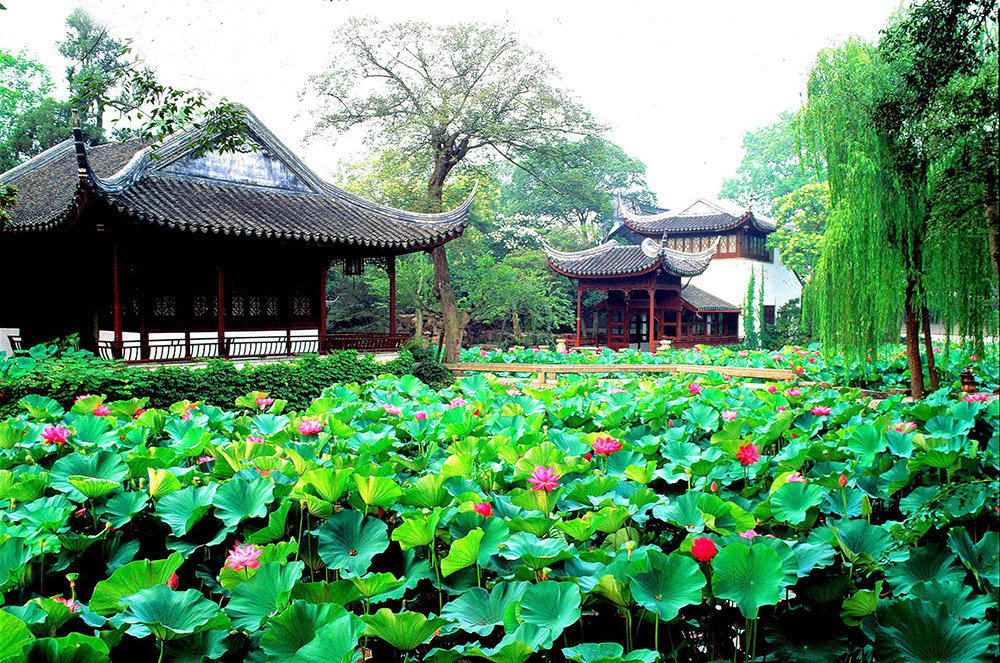
Each corner holds meaning. Each pathway, a hidden metaphor. Take a slow walk through the Humble Administrator’s Garden, where winding corridors, lotus-filled ponds, and elegant pavilions tell stories of Ming dynasty scholars. Or wander into the Lingering Garden, where delicate rockeries and bamboo groves invite long gazes and quiet thoughts. Suzhou’s gardens aren’t flashy; they speak in soft tones and shadowy textures, perfect for visitors seeking culture and calm.
Canal Towns and Water Villages of Jiangnan
Outside the city proper, Suzhou stretches into the shimmering waterways of Jiangnan. Here, water towns like Tongli, Zhouzhuang, and Luzhi preserve the old rhythms of life—stone bridges arching over canals, boats drifting like time itself, and whitewashed houses mirrored in still waters.
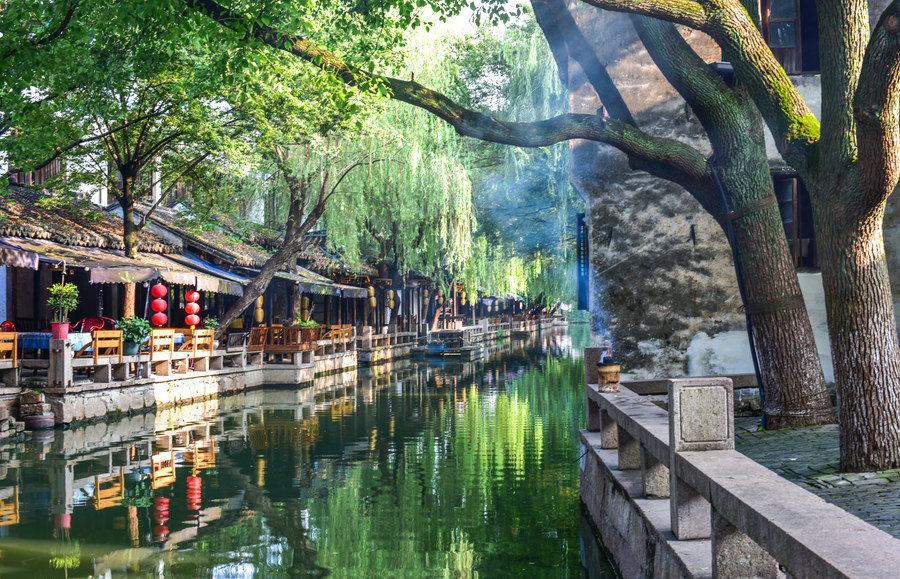
These ancient towns near Suzhou are some of the most charming water towns near Shanghai and offer a peaceful alternative to city sightseeing. Every cobbled alley feels like a step back into a slower century, perfect for elderly travelers, couples, or families who want to enjoy quiet afternoons and heritage walks.
The Art of Everyday Beauty: Suzhou’s Intangible Heritage
Suzhou is not just made of stones and water—it’s also built with thread, ink, and music. The city is known for its rich intangible cultural heritage, including Suzhou embroidery, which once decorated royal robes with lifelike elegance, and Suzhou Pingtan, a form of musical storytelling sung in soft Suzhou dialect.
At museums or local studios, you might find artisans handcrafting song brocade, or brush-painting fans with motifs of cranes and peonies. There’s a grace to the way Suzhou preserves these traditions—never rushed, always refined. It’s a lovely place to explore Chinese folk art at your own pace.
Tasting Jiangnan: A Journey for the Gentle Palate
Suzhou cuisine is light, sweet, and graceful—like the city itself. Known as part of Jiangnan cuisine, the local food favors fresh river fish, seasonal greens, and subtle flavors that bloom softly on the tongue.
Try sweet and sour Mandarin fish, a Suzhou classic that arrives sculpted like a flower. Sip on osmanthus-scented rice wine, or enjoy delicate snacks like water chestnut cakes or lotus root stuffed with glutinous rice.
Suzhou is also famous for its tea culture, especially Biluochun green tea from nearby Dongting Mountain. In quiet teahouses near the canals or inside the ancient gardens, sipping tea is less of an activity and more of a lifestyle.
Suzhou’s Loveliest Places to Visit
Humble Administrator’s Garden
The most famous of Suzhou’s gardens, this large and lyrical space is a masterpiece of classical Chinese garden design. Expect ponds full of lotus, zigzagging bridges, and pavilions with poetic names. A dream for photography lovers and those seeking tranquility.
Tiger Hill (Hu Qiu)
A bit more rugged and mysterious, Tiger Hill is crowned with a leaning pagoda—often called the “Leaning Tower of China.” Below the hill lies a tangle of stone paths, bonsai gardens, and ancient legends. An excellent half-day escape.
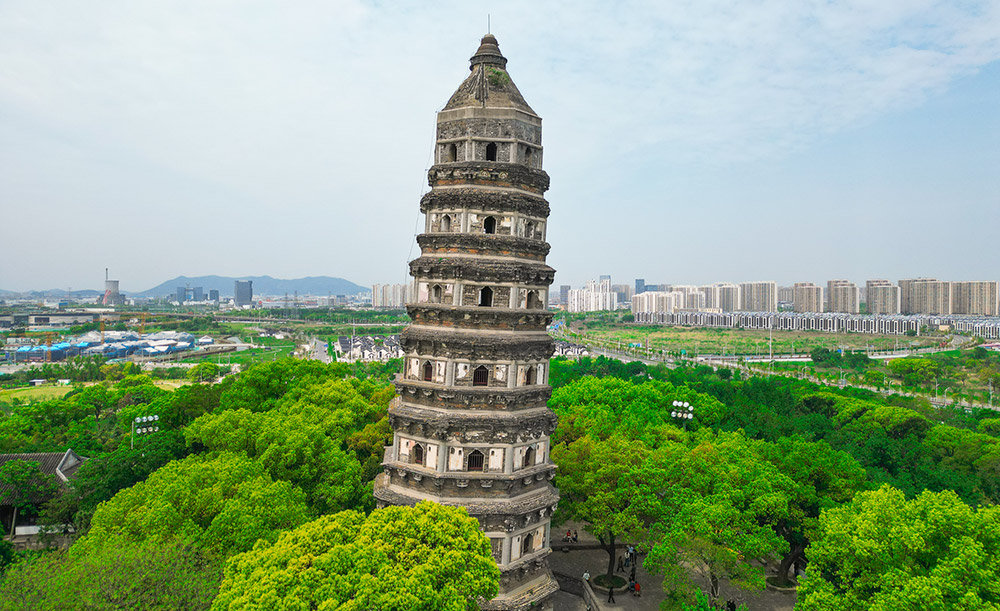
Suzhou Museum
Designed by the legendary architect I. M. Pei, who was born in Suzhou, this museum is a serene blend of modern lines and traditional style. It showcases ancient ceramics, calligraphy, and artifacts from Suzhou’s long cultural past.
Tongli Ancient Town
One of the best-preserved water towns near Suzhou, Tongli is famous for its “One Garden, Two Halls, Three Bridges” and a sense of lingering nostalgia. You can take a quiet boat ride, visit old residences, and even find small shops with halal options for Muslim travelers.
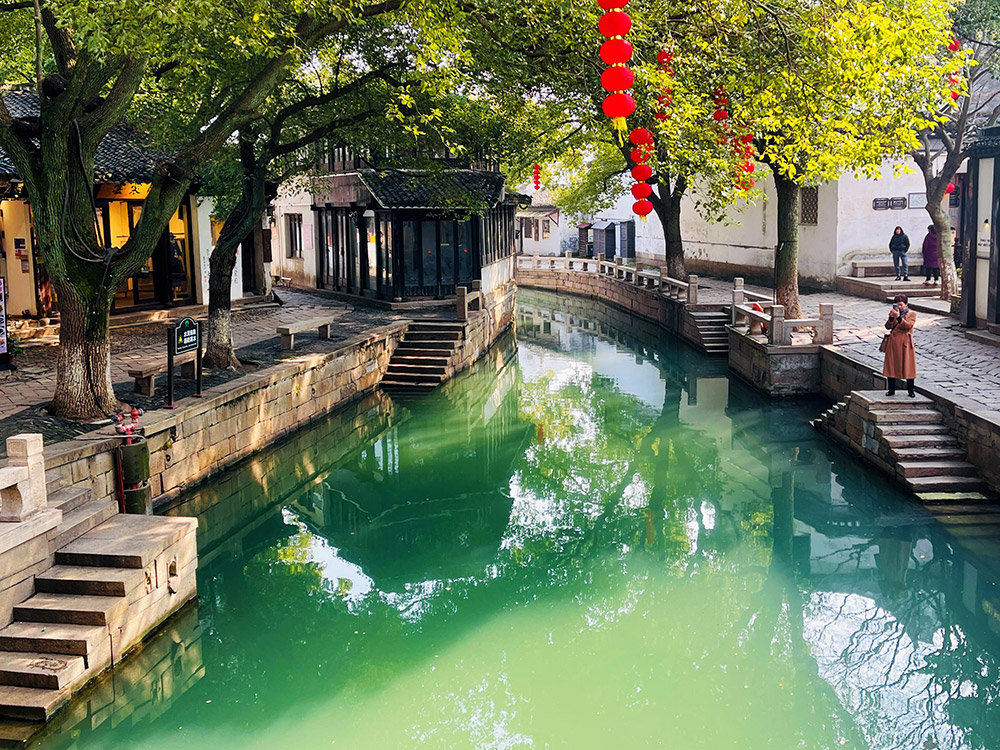
Shantang Street
Perfect for an early evening stroll, Shantang Street offers charming shops, traditional snacks, and a canal-side view of old Suzhou life. Lanterns light the way, and local performers may surprise you with a soft song.
Suzhou Travel Tips for Gentle Explorers
- When to Visit: Spring and autumn are best for Suzhou travel—think cherry blossoms, tea harvests, and golden gingko leaves.
- Where to Stay: Boutique hotels hidden in historic alleys or garden-view guesthouses make your stay extra cozy.
Suzhou doesn’t shout for attention. It gently invites. It folds time into quiet pavilions, whispers along canals, and leaves traces of beauty in every brushstroke and blossom. For anyone seeking a soft, meaningful journey through Chinese culture, Suzhou is a place to linger—not rush.
Whether you’re here to explore classical gardens, taste elegant Jiangnan cuisine, or simply sit by the water and listen to history flow by, Suzhou will hold your hand in the most poetic way.
Contact us today to craft your dream China adventure!

